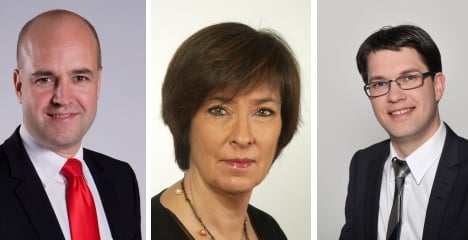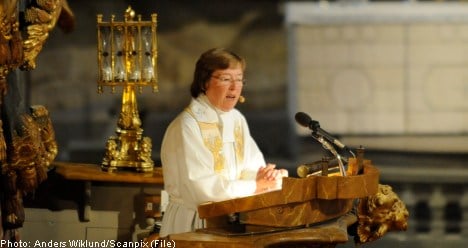For the first time in Sweden, where the Social Democrats have largely dominated the political scene since the 1920s, the September 19th vote is pitting two coalition blocs against each other in an election campaign focused largely on the economy and the country’s famous womb-to-tomb welfare state.
On one side, there is the governing alliance, made up of Prime Minister Fredrik Reinfeldt’s Moderate Party and the Centre, Liberal and Christian Democrat party, who have tirelessly trumpeted the country’s sound economic performance in their re-election bid.
The tactic appears to be working. While opinion polls showed voters shunning the government at the peak of the financial crisis at the end of 2008 as the Swedish economy slumped, its support has swelled in step with the recovery and in recent months has clearly surpassed the leftwing opposition.
The Social Democrats, whose leader Mona Sahlin is angling to become Sweden’s first woman prime minister, have meanwhile been forced for the first time to join forces with other left-wing parties, the Greens and the formerly communist Left Party, to stand a fighting chance in Sunday’s polls.
As late as in June, many observers were predicting a win for the left, which has criticised the government on pensions, education and for watering down the welfare state by cutting taxes.
But since then the opposition has hit a downward slope, something analysts say could be because voters do not recognise the dire picture it has painted of the government’s economic and job policies at a time when Sweden is boasting slipping unemployment and soaring economic growth.
Adding more spice to this year’s vote, is a likely monumental surge by the small far-right, anti-immigrant Sweden Democrats, who are expected to make it into the Riksdag for the first time and could easily land in the position of kingmaker.
In a poll published Wednesday, the party scored a record 7.5 percent of voter intentions — well above the four-percent limit for entering parliament and more than double the 2.9 percent it won in the 2006 elections.
If neither of the main political blocs manages to win a clear parliamentary majority, the far-right party led by Jimmi Åkesson, 31, could be in a position to determine the outcome of the election.
While both Reinfeldt and Sahlin have said they will never cooperate with the party, its presence in parliament could force them to forge alliances they otherwise would have avoided.
If that happens, the parliamentary situation could get “messy,” even prompting “new elections, which would also be completely new for Sweden in modern history,” says Jenny Madestam, a political scientist at Stockholm University.
This year’s election could be historic in other ways too.
“A rightwing government could possibly be re-elected, which is completely unique in modern Swedish politics,” Madestam says.
“On the other hand, in the less likely scenario the left wins, it would definitely be unique if we end up with our first woman prime minister,” she adds.
Wednesday’s poll handed the ruling alliance 49.8 percent of voter intentions, compared to just 40.9 percent for the leftwing opposition.
That would give the current government a parliamentary majority of 177 out of 349 seats.
“2010 looks like it will be the election when the long Social Democratic domination of Swedish politics was finally broken,” Peter Wolodarski, the lead political columnist with daily Dagens Nyheter, wrote earlier this week.
Peter Santesson-Wilson, a political scientist at the Ratio research institute, agrees.
“If they lose, it will be very dramatic for the Social Democrats to be kept away from power for so long,” he tells AFP.
If it suffers a bad loss, the party that has ruled Sweden for 63 of the past 80 years and is considered the caretaker of the welfare state, will likely be forced “to rethink the entire party,” he says.
Swedes will also vote in regional and municipal elections Sunday.
However, it could take a while before the outcome is clear, with the final results expected as late as the middle of next week.



 Please whitelist us to continue reading.
Please whitelist us to continue reading.
Member comments